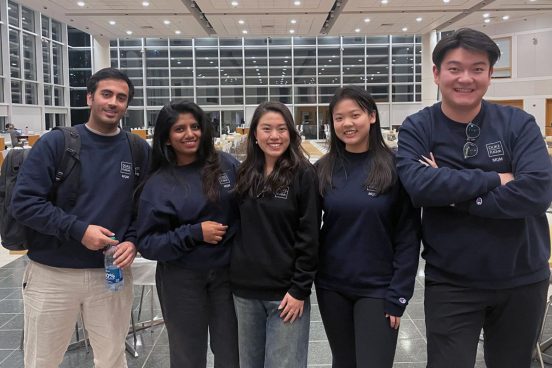Duke MQM Student Blog

Our Corporate Project: “The Icing on a Challenging Cake”
We were the first set of students to ever complete the degree online. COVID and its by-products were threatening to define our final experiences at Duke’s Fuqua School of Business.

As a member of the Master of Quantitative Management (MQM) graduating cohort of May 2020, my final term at Fuqua was marred by a series of unfortunate events that everyone is surely all too familiar with at this point. In truly unprecedented fashion, we were the first set of students to ever complete the degree online. And in many ways, COVID-19 and its by-products were threatening to define our final experiences at Duke’s Fuqua School of Business.
But that’s not how it was originally meant to be. The MQM program’s final term is different from the first four. The latter consists entirely of classes rounded off by final examinations and papers evaluated within the MQM ecosystem. Spring Term 2 is headlined by the Capstone project: a full scale, 6-week client engagement that allows students to get a taste of their future jobs as analysts and data scientists.
In March of 2020, we were paired with Corestream, a Tampa, FL based voluntary benefits administration platform. To put it simply, they are a dynamic, fast-paced firm that offers HR teams at major corporations an easy way to manage their employees’ diverse benefits packages in one single place. We were excited, did some initial research, and set up a phone call with their COO, Gwen Tormey.
Gwen was wonderful. We were equal parts awestruck by her stellar career and comforted by the patient, detailed manner in which she outlined everything she hoped to get out of this engagement. For us, the objective was simple: do good work, and gain meaningful experience.
And so we set out to do just that. We laid the data under a microscope, constantly chopping, cleaning, and deduping with the tenacity of stone carvers trying to fashion a sculpture out of a slab of rock. This was our first real hurdle: we found, much to our chagrin, that datasets in the real world were messy, and unlikely to yield clear-cut results. To exacerbate the issue, we were unable to ever work together in person, and had to conduct all our research over Zoom’s trusty screen-sharing feature.
A strategic reevaluation was needed. After taking multiple steps back, it became clear that we needed better project management. We set up weekly check-ins with Gwen. She was kind enough to give us time on Monday mornings which allowed us to conduct our research over the rest of the work week and get back to her with new information. This continued for five productive weeks where we found several interesting trends, relationships, and patterns in the data, some meaningful, and others not so much.
Our toughest task, that was perhaps most applicable to the real world, was to be data translators. This involved the adept, skillful navigation of tools and languages like Tableau, Python, and R but also great problem solving, storytelling, and illustration to capture the attention of some of the more business-focused members of Corestream’s leadership looking for actionable recommendations.
Fortunately, our team’s talents were varied. We were able to split the work so that everyone had a fair shot at learning new skills, but also found themselves in charge of project pieces that they felt comfortable with. I, for one, spent most of my time crafting client communications, making decks, and presenting our findings, since I was good at those things. But I was also able to try my hand at correlation matrices on Python. By carefully mixing and matching, we were able to use everyone’s skills to produce an elegant yet substantial review of Corestream’s marketing tactics.
The final presentation to CEO Neil Vaswani and Gwen was well received. They were intrigued and occasionally surprised by some of our findings, and asked us several questions that we were happy to answer. Neil was interactive, curious, and supportive, and receiving a virtual pat on the back from the company’s leadership felt rewarding.
With hurdles aplenty, neither the term nor the project was ever going to be easy. But with the support we received from our Assistant Dean, Jeremy Petranka, our advisor Veena Raman, and the Corestream leadership, we were able to put other things aside and focus on sifting through the data to tell a captivating story.
Six months into a job as an analyst, I can safely say that the ability to mold unpleasant datasets into a good story is a crucial competency, and one that the Capstone experience gave us in heaps.
In many ways, the Capstone project served as the icing on a very challenging cake we had baked over 10 months in the program, and that little peek into the real world ended up giving many of us the final touches on a well-rounded candidacy in a tough job market.



